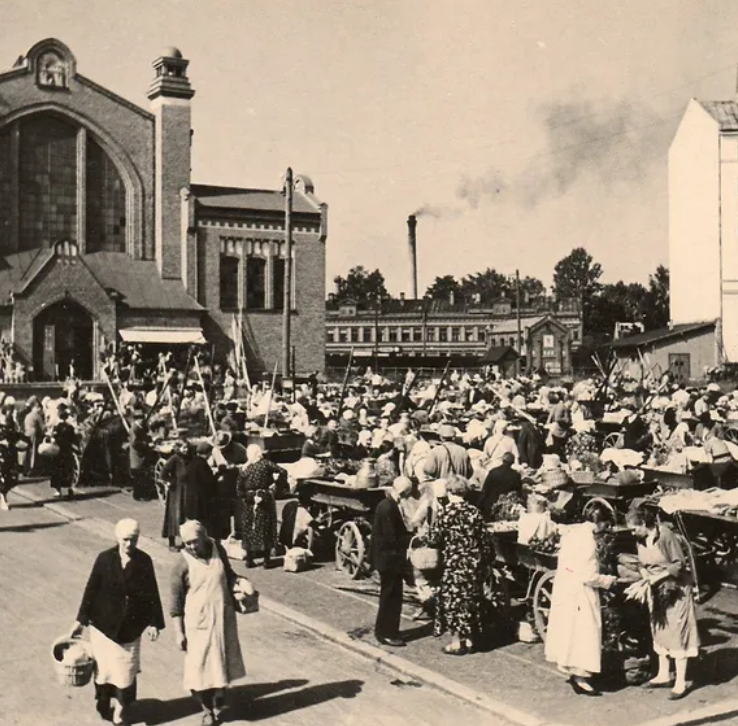In Agenskalns there is a breeze
that sways laughter and leaves
like a hidden memory
trying to recall its original meaning
behind the dust and the overgrown grass
Agenskalns is in Riga
on the west bank of the Daugava River
Old wooden houses mix
with soviet social housing
and in the middle, the market
The market is living a second life
transported in time
Some of its original elements remain
A window, a door
Portals to a forgotten world
from 30 or 100 years ago
The light is the same
The rain is the same
but humans have changed
Have they?
The main pavilion is now diaphanous
Old walls have fallen
and the coats of arms of these 25 cities
are now a decoration
and a symbol of Latvian national unity
The market is a place of exchange
not only in monetary terms
but as a choreography of give and take
Food nurtures us
physically and spiritually
It connects us to each other
and to the land
Beyond borders
Beyond owners
This second life of the market
is slightly different
as it strives to be a community space
not only for traders and buyers
but also, for the general public
A safe space for minorities
and a temple of our shared knowledge.
Next to the market
a metallic structure stretches to the sky
It was brought from the Caspian Sea in 1955
where it used to drill in the depths of the sea
to extract the fuel of humanity’s dreams
Nowadays it is Agenskalns TV tower
It presides the neighbourhood’s skyline
as an anachronistic reminder
of our unbreakable faith in progress
Underneath plants and flower thrive
in a DIY greenhouse
built out old window frames
It serves as a sort of public library
where you can focus, or relax
or dive into second-hand books
rescued from unreached shelves of the neighbourhood
to hear the unsung tales of the forest
Nymphs, fairies, floral beings,
werewolves, sirens and giants
They all belong to Agenskalns
Like a glass of wine
on a never-ending sunset of July.
Text by Luis Miguel Benavides, June 2024

